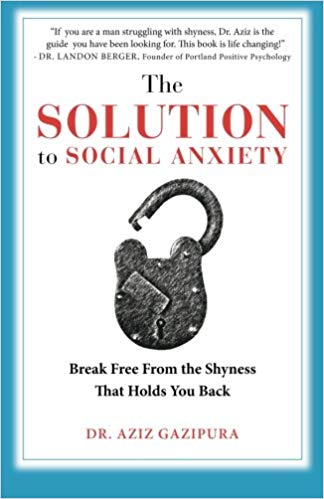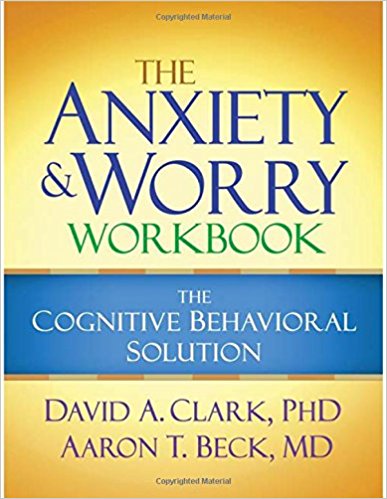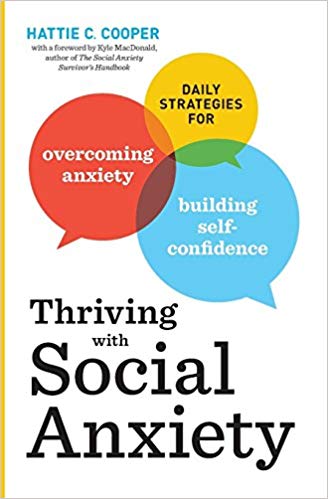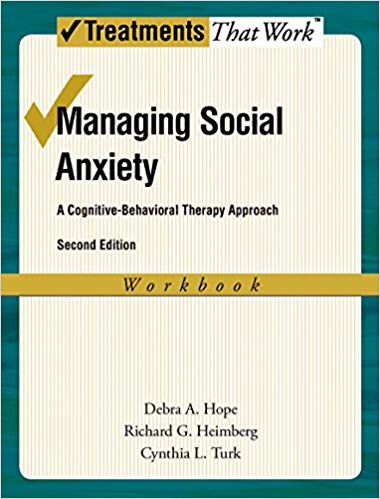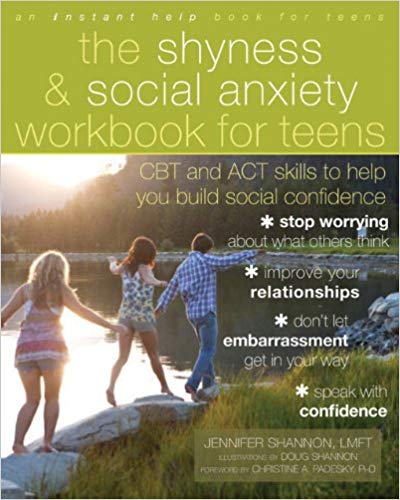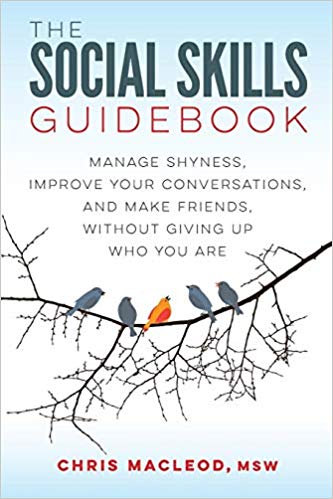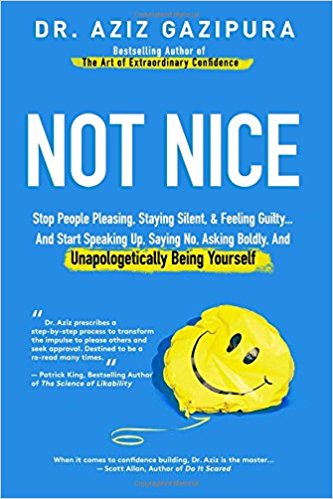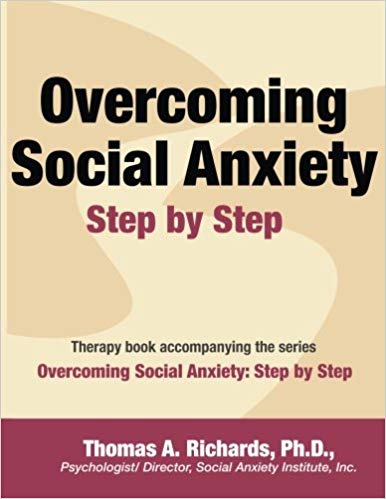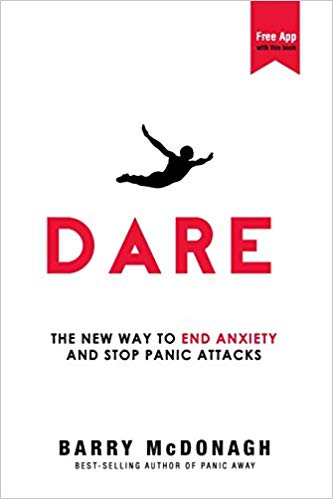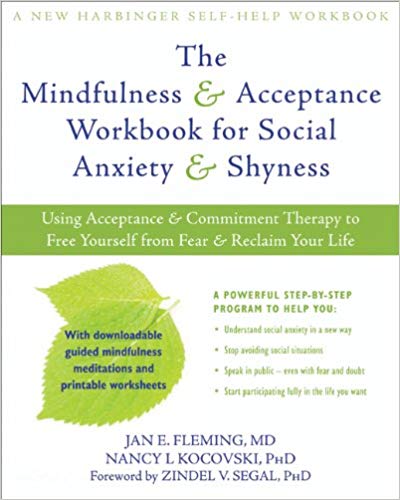There cannot be a single person in the world who has not experienced anxiety, stress, and fear during their lifetime. It is such a complex disorder that it consists of a variety of types as well.
Stress anxiety disorder is often confused with people who are introverted, of course, which it is not. Being introverted is a personality type along with shyness; both perfectly natural in plenty of scenarios. Stress anxiety disorder can be in mild forms which disappear on its own or it can be really severe, to a point where it causes problems in the day to day life of the person and where only extensive therapy and medication can fix. Many people with stress anxiety distress don’t seek out treatment because they‘re scared or they assume the disorder forms part of their personality.
For a child, it’s really hard to open up to people because they feel they don’t meet up to the “cool standards” of their peers and reminded of it on a daily basis, maybe by adults and almost certainly by their peers – never going to be a wizard on the sports feel, never going to be the most good looking or prettiest. No matter how many people try, some children and adults retire into their shell and no amount of cajoling can make them stray far from it.
There are 6 types of anxiety:
- Generalized Anxiety Disorder (commonly known as GAD)
- Social Anxiety Disorder.
- Panic Disorder Agoraphobia.
- Phobias.
- Post-Traumatic Stress Disorder (PTSD)
- Obsessive-Compulsive Disorder (OCD)
We are going to look at one, social anxiety and the anxiousness that comes with this disorder. What is it? It’s the fear of being evaluated and judged negatively by others. Usually, this builds up inside you, resulting in feelings of inferiority, inadequacy, embarrassment, self-consciousness, depression and humiliation. If you notice these signs manifesting in somebody in a social situation, but they seem more on top of things when they are on their own, then social anxiety could be what’s “eating” them.
Has it been around forever?
Research says that social anxiety disorder affects, or is more common in middle- aged women and children, but it’s a condition that can remain unrecognized for a long time. Years ago, before the word “anxiety” was used, people were known to be stressed or to have a “nerves disorder”. Those who were from the ‘common’ neighborhoods did not really understand this disorder very well, nor really was it understood by the health professionals of the day either. It was for this very reason, that not many people got treatment. But the recognition of this disorder worked its way slowly through the corridors of time. Look at what Hippocrates said of social anxiety. He called it “shyness”, it is about people who “love darkness as life” and who “thinks every man observes him”.
The Greeks called these fears and terrors phobias, and they used this word, phobia with Latin and Greek prefixes to tell the difference between the different types of fear. So you would get the fear of being observed as scopophobia or the fear of strangers as xenophobia or the fear of people as anthropophobia. In the 18th century, this topic gained much interest and some European psychologists, psychiatrists, and authors studied it in more depth, bringing to light all the manifestations around social phobia. Recognition of social anxiety as a real discipline only was recognized in the 20th century and only in 1994 did social phobia get a new name, Social Anxiety Disorder or SAD. Today’s modern definition is a “marked and persistent fear of one or more social or performance situations in which the person is exposed to unfamiliar people or possible scrutiny by others.”
Social anxiety comes in third out of all the anxiety types
Actually, social anxiety disorder is a very common problem, affecting millions of people around the world, and even children. Many of the millions don’t want to admit they suffer from it for fear of rejection and humiliation. In the past, this disorder used to be called social phobia. It comes in at number 3 out of all the anxiety disorders, with only alcoholism and depression taking the two top spots. One specific social anxiety disorder many people suffer from is the fear of speaking in front of people. This can be their only anxiety, whereas other people experience general anxiety and nervousness in just about all social situations.
What are the symptoms of people with social anxiety disorder?
People usually suffer emotional distress in these types of situations:
- When being introduced to other people
- When they are the center of attention
- When criticized or teased
- Being watched when they do stuff
- When they meet people in positions of authority (like “important” people)
- When they experience social encounters with strangers
- When they need to speak out or answer when sitting in a group or circle
- In friendships, whether friendly or romantic
This isn’t even a complete list. Other physiological symptoms that go along with social anxiety can and do include racing heart, intense fear, blushing (going red), excessive sweating, trembling, dry mouth, unable to swallow properly, muscle twitching and tics (especially on the neck and face). The thoughts and feelings associated with anxiety are persistent and usually don’t go away, even when these people face these dilemmas on a daily basis.
Is there help for this disorder?
There is good news for those who suffer from the malady of social anxiety. Clinical evidence and research show that there is therapy for social anxiety which proves successful. It’s called cognitive behavioral therapy which needs to be comprehensive in nature to bring about permanent changes in people’s lives. It can be overcome, but it will take persistence and consistency. If a social anxiety disorder needs to be successful, it needs to address all the cognitive strategies, methods and concepts that allow peoples brains to change. Remember the brain is learning constantly, which means that any irrational beliefs and thoughts can change as a result of the cognitive process. When you embark on a good therapy program, you will see how the strategies used need to be worked on, practiced and accepted in order to alter your rational beliefs, thoughts, perceptions, and emotions. Support, encouragement and a stress-free environment are ideal so you can practice your therapy.
You might well have heard lots of people say, “Just face your fears, then they go away”. But, sorry, they don’t. If you have a therapist who says that to you, rather look for another therapist. You really need to find a psychologist who understands all about social disorders completely because if they don’t even really know what it is themselves, how can they help you? And it’s not an easy task, but thousands have achieved it and you can too.
Strategies are used to help you overcome your specific social anxiety
A person who feels stressed when they read in public will use certain strategies that help him to achieve his goal whereas the person who wants to know how to approach people and make introductions, engaging in conversation or small talk at social activities will work towards that goal. Role plays, acting, tape recordings, video cameras, answering and questioning, mock interviews and doing foolish type stuff deliberately forms part of the behavioral therapy in a group dealing with social anxiety – this is repeated and redone until the goal is met.
Joining a therapy group, there should be no pressure, no cajoling, and no pushing to do things. There are no negative tactics used because each individual will participate at their own pace. If you just want to sit in your group and not say a thing that is also OK. No one in the group should be made to do anything they don’t want to. People wonder how the desired results are achieved if a person does not want to do anything. But the secret is that it never happens because even despite the group having a certain kind of anxiousness in itself, all participants involved voluntarily choose to work on their own special anxieties without being forced
Do you need professional help?
A lot of doctors will agree that if you suffer from stress anxiety disorder, you need to see a psychologist. This is when normal anxiety doesn’t go away; it has been around for more than 6 months; it has increased in intensity and affects your everyday life.
- There are some risk factors parents need to look out for when it comes to stress anxiety disorder in their children. Some of these risk factors are being very shy, low self-esteem, poor grades, trouble talking to other people, a lack of social skills, too emotional. In school children you might notice them holding back with answers when the teacher asks the class; they avoid their lunch break because they don’t want to or don’t know how to mingle with the other children. They don’t seek help from other children in their class or the teacher in case they get taunted, they avoid school activities because they want to rather hide away, and they steer away from class activities and projects, giving the impression that they just don’t have the interest. These types of children are unnoticed in the classroom.
- At university or college, the student fears his or her first day where they need to introduce themselves; scared of stuttering or embarrassing themselves. They want to talk to the other students but just feel they can’t or they avoid seminars or presentations to avoid embarrassment.
- At the office, these people usually work alone because they think others won’t approve of their work contribution; they avoid talking to the boss, they hate meetings, they don’t often find jobs easily and can even hop from job to job. Usually, they don’t like taking calls for fear of stuttering, etc., they worry about what they said and their tone of voice; they fear to create a bad impression on their boss, etc.
- Socially, people don’t like to eat and drink in public; they fear being judged and watched by others. They don’t like walking down the road because they think people are looking at what they wear, how they talk, how they walk, assessing them negatively. They fear meeting others because they don’t know how to “behave” around them. Even though they want to, they are scared of going on a date with the opposite sex or even speaking to them. They don’t want to attend social functions like parties, weddings or a get-together. The list goes on.
Does social anxiety disorder show up physically in your body?
Yes, it can show with any of these signs:
- Can hear and feel your heart throbbing and pounding, and blood rushing to your head or hear
- Can experience blurred vision
- Can’t stop blushing or your face kind of looks frozen
- Your hands tremble and shake
- You feel dizzy and nauseous
- Your mind goes black
- You sweat profusely
- Your body becomes stiff
- You can’t hold eye contact
- You speak in a low, very low voice
- You go to the restroom often
- Digestive and insomnia disorders
Frantic for some self-help?
Those who have anxiety disorders will usually know they have this problem. If you recognize any of the above signs, it can be you require professional help, just so you can have a better quality of life. If you feel you need help, you will need an assessment from a qualified doctor trained in social disorders because it is possible that this type of disorder can arise from other disorders like depression or substance abuse, panic attacks, other phobias. And testing will be able to rule out the conditions.
People who suffer from social anxiety simply don’t want to be noticed and stand out; they try and be inconspicuous if they can help it. And it really interferes with your life – a lot. You might long to have a calm attitude or be less-self-conscious when you talk and interact with people at parties etc. And for some, it is so severe, such an ordeal that they might even avoid entering a college because public speaking is one of the entrance requirements. Even a romantic relationship can’t even start because the thought of rejection becomes such an issue.
What are the practical solutions to help you?
1. You can try a self-help manual.
These are designed to be in addition to therapy, but also good if you want to work through it on your own. There are books, for example, Managing Social Anxiety for you to go through.
2. Make an appointment with a therapist
Social anxiety could be preventing you from doing stuff you need to do and you might not have had success with your own methods – professional help is at hand You need to find a professional one who specializes in social anxiety disorders.
3. Try deep breathing every day.
Deep breathing is always helpful in any case but helps a lot before embarking on an anxiety driven social event. Practice deep breathing every day, until it becomes second nature to you.
4. Create an exposure hierarchy.
What is that? It’s where you write down a list of all your anxieties, starting with the easiest and working your way down to the hardest.at the top. Your therapy sessions will help you achieve these.
5.Toastmasters: They might be just what you are looking for.
Some other practical solutions
Nature also offers a general supply of harmless but highly efficient herbs that offer solace and help for people who are troubled with stress, tension, anxiety and the headaches and pains that often are associated with it. Look at some herbs that offer tranquility:
Lady’s Slipper: (very difficult to get hold of these days) A nerve remedy reputed to be effective in the treatment of hysterical conditions and also in cholera (nervous disorder accompanied with spasmodic twitching’snd other involuntary movements).
Motherwort: This herb still today has retained it age-old classification as an anxiety tonic, an antispasmodic, regulating the rhythm of the heartbeat with its calcium properties.
Skullcap is an anxiety tonic, a nerve tonic, an antispasmodic, one of the best nervous tonics ever discovered.
Valerian: a wonderful perennial herb, a traditional remedy for functional disturbances of the nervous system.
A healthy diet goes a long way in helping to improve anxiety responses. Dark green leafy vegetables are really rich in magnesium and B vitamins. Magnesium is a natural muscle relaxant, assisting in anxiety, irritability, fear, and restlessness. Look at what Theanine, the amino acid can do for you too; it’s a wonder formula for people feeling fatigued and ‘stuck’, found in green tea and able to reduce the stress responses in the body so you feel more relaxed in stressful situations. Melatonin, Rhodiola, Fish oil, and of course, probiotics are simply irreplaceable when it comes to anxiety and stress.
Conclusion
Stress anxiety disorder affects millions of people throughout the year, every year. Many say of this serious and cyclical condition that they will never be a sufferer. Therefore, it is important to be aware of the remedies and solutions to bring some sense of peace. The best way is to work with a professional, but other practical solutions play a role as well. Amongst others mentioned in this article, exercise, meditation, and building a strong network of support play a huge role.
Unfortunately, people with stress anxiety disorder are caught up in a vicious cycle; tending to always put themselves down as they believe this is how others perceive them. Constant states of panic with associated symptoms all send out negative signals to other people. The bad experiences lead to even more bad experiences. Unless something is done about it, the child or older person with stress anxiety syndrome becomes convinced that they are just not sociable.
Some anti-depressant drugs like Paxil, Effexor or Zoloft have been found to be effective in people with stress anxiety disorder too. But unfortunately, there are no guarantees that these drugs will work because everybody’s biochemistry is different, and many of these drugs have negative side effects.
Usually, it is not the parent’s fault, the school’s fault, the student’s fault, nor the people encountered in the social and working arena’s fault. It is the fault of a society that puts a prize on the loud, bold and flashy over the careful, quiet and thoughtful people, trying to convince us each and every day that our lives need to fit into a certain mold in order to be happy. Everyone longs occasionally for a reset button he or she can push at socially anxious times. Look at the above solutions, try them, and remember this little saying because it’s probably true of you and me: “don’t be too distracted by criticism; remember that the only taste of success some people get is by taking a bite at you”.
Best Social Anxiety Remedies


